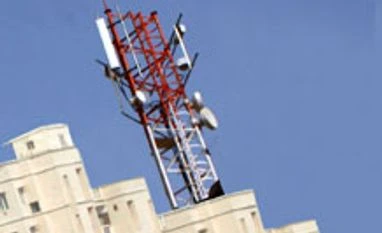Telecom sector might have touched its lowest point
Top telecom players Bharti Airtel, Vodafone India, Idea Cellular recently cut down their promotional offers
)
Analysts say that telecom companies have already seen the bottom and there can only be one way upwards. “There have been three large issues in the sector—tariff which has seen some clarity now. The second worry with regards to regulations, that has seen partial clarity after spectrum auctions, and the third is stretched balance sheets which can get sorted over time as cash flows increase,” said Sushil Sharma, senior research analyst, BRICS Securities.
Top telecom players like Bharti Airtel, Vodafone India, Idea Cellular recently cut down their promotional offers. Reliance Communications increased its pre-paid tariffs by 25% in September last year, and later undertook yet another round of cutting down free minutes.
“We have said during our tariff hike in that in September, that this is the first and that it will be followed by a series of hikes. The cost of input materials has been increasing and there is a cost push. The industry has been bearing the costs. Going forward, we will recover it from subscribers,” said Gurdeep Singh, chief executive officer--wireless, Reliance Communications.
Increased input costs like diesel costs and subscriber acquisition charges might not call for an immediate margin increases. Avendus Securities believes that 1% rise in average revenue per minute (ARPM) is likely to improve Bharti's consolidated earnings by five%, and that of Idea Cellular by 12%. assuming no impact on usage of minutes.
“Change in margins is likely to be a function of improvement in pricing and higher costs. We expect margins to improve during the next two years,” said Anand Shanbhag, head of research at Avendus Securities.
Daryl Phillip, senior telecom analyst at Finquest believes many more such tariff increases are in store this year. “It has happened in data, and has to happen in voice as well. This financial year will see more tariff hikes,” he says.
Apart exit in the number of players in the market, competitive intensity amongst companies too reduced. It means that companies are not scrambling to add more subscribers like in the tariff war era. The total number of subscribers showed de-growth in the last few months as dual SIM card users reduced, along with churn of subscribers from one network to another.
Idea Cellular's managing director Himanshu Kapania said that there is no case for an increase in its headline tariffs. However, he also said that they intend to move away from 'bargain seekers', by cutting off promotional offers.
“There are customers who would rather go for a new SIM as opposed to recharges,” said Kapania. This might reduce the subscriber acquisition costs in the long run, though in the short-term they would be higher as government heightened subscriber verification, hiking up their costs.
However, telecom companies still have a sword hanging on their heads in the form of a possible one-time spectrum levy, which is currently being disputed in courts. That could lead to a possible outflow of around Rs 5,201 crore for Bharti, Rs 2,113 crore for Idea and Rs 173 crore for RCom.
“The spectrum auctions in November was not fully subscribed and reserve price was cut as well. The prices fixed hitherto like renewals and one-time spectrum fee is likely to be influenced by the reserve price for the auctions. Hence, a cut in reserve price for the future auction is a positive,” said Shanbhag.
More From This Section
Don't miss the most important news and views of the day. Get them on our Telegram channel
First Published: Feb 15 2013 | 3:20 PM IST
